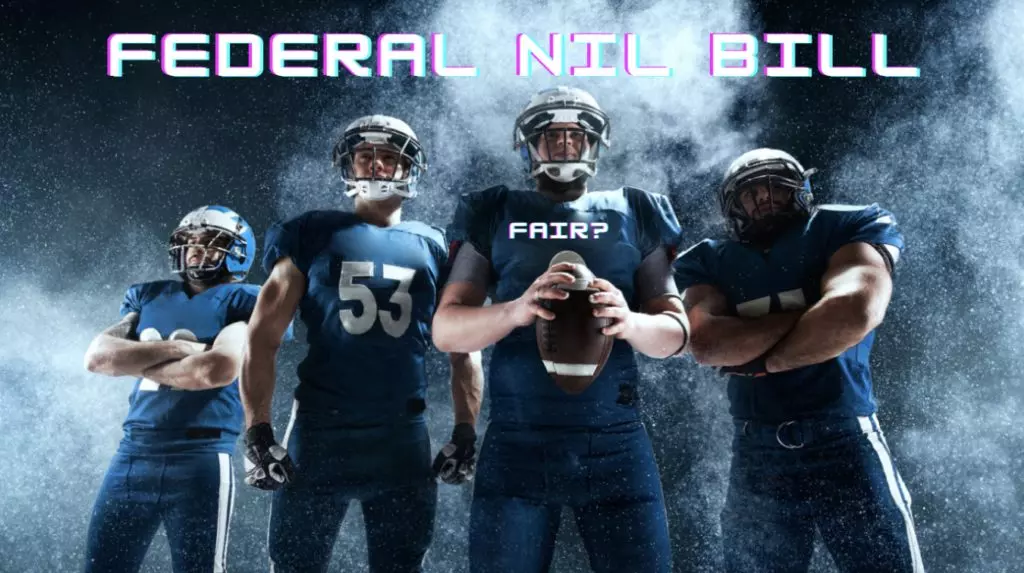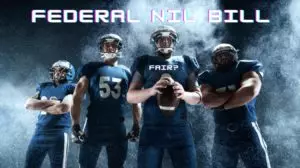Last week, Florida senator Marco Rubio proposed the “Fairness in Collegiate Athletics Act,” one of the few federal bills designed to regulate the economic activities of college athletes competing in the NCAA. Misleading title aside, the bill is problematic, in that it is the first bill of its kind to grant the NCAA rights to determine athletes' name, image, and likeness rights at the federal level. Should the bill pass, it would override any state laws pertaining to NIL, including recently-passed laws in Florida and California, and also nullify the NCAA's lukewarm promise to modify its amateurism rules by January 2021. In addition, the “Fairness in Collegiate Athletics Act” is anything but fair, as it gives the NCAA far too much leverage in controlling its athletes' finances.
The bill leads off by stating its purpose is “to ensure that college athletes, and not institutions of higher education, are able to profit from their name, image, and likeness, and for other purposes,” which sounds nice, but the subtext of the proposed legislation suggests that there is more to the bill than its opening statement. Section 3 states that no later than June 30, 2021, the NCAA will have to “establish a policy that permits any student athlete to earn compensation from a third party as a result of the use of the name, image or likeness of such student athlete.” I can't think of another bill allowing a nonprofit organization (shockingly, the NCAA is a 501(c)(3)) this amount of power to guide federal laws.
Granting the NCAA so much legislative overreach is already dicey, but things get even shadier as you read a few lines down. The bill requires athletes to report their financial activities to their intuitions, which is questionable, to say the least. To borrow a common metaphor used to counter amateurism arguments, if a music major on an academic scholarship performs for local venues on the weekends, and earns compensation for her performances, does she have to report those numbers to her professors? Of course not. Why should college athletes have to under federal law?
The concept of amateurism as it referenced later in that page is also problematic, as the bill states that any rules proposed should “preserve the amateur status of student athletes.” A brief dive into sports history reveals the inherent issues of amateurism in sports. Originating in nineteenth-century England, amateurism was a concept used to divide working class (professional) athletes from upper class (amateur) athletes, who were well-off enough that they did not need to earn compensation for their skills. These upper-class athletes wanted to maintain a divide between them and the working class simply because they viewed these athletes as lower-status than them, so they created two athletic classes, amateur and professional, and deemed the professional athletes unworthy to intermingle with the “noble” amateurs in competition. In short, athletic amateurism is a myth rooted in classism and segregationist politics, one that is aggressively maintained by the NCAA today.
The term “student-athlete” as it is used in NCAA policy is equally as unjust. Rewind about seventy years from the present day to 1947, when Walter Byers became the NCAA's first executive director, and you'll see why. In his memoir, Unsportsmanlike Conduct: Exploiting College Athletes, Byers wrote that at the beginning of his tenure, he “was charged with the dual mission of keeping intercollegiate sports clean while generating millions of dollars each year as income for the colleges.” To manage this tension, Byers coined the term “student-athlete” in 1951, which soon “was embedded in all NCAA rules and interpretations as a mandated substitute for such words as ‘players' and ‘athletes.'” Byers notes that his reframing of the amateur athlete was in response to mounting legal pressure that threatened to identify NCAA athletes as university employees, and to deflect from “the issue of workmen's [sic] compensation for players,” and the same argument surrounding worker's rights of student-athletes persists today. The ideology behind the terms “amateur” and “student-athlete” alone makes me question the intentions and integrity behind this new legislation, but one thing is clear: the NCAA has no intent to grant college athletes full free market access, especially if the Association gets the green light from federal courts. Especially because section 4 of the bill could grant the NCAA legal immunity from antitrust lawsuits.
There are headlines floating around claiming Rubio's bill is “giving” economic rights to college athletes. That could not be farther from the truth. From its inception, the NCAA has done nothing but limit, control, and regulate its athletes' finances. The “Fairness in Collegiate Athletics Act” is no different, and it's anything but fair to the over 400,000 college athletes who deserve a much bigger piece of the massive amounts of revenue they generate for the NCAA.
For more NCAA updates, follow Katie Lever on Instagram/Twitter: @leverfever
* Originally published on June 24, 2020, by Katie Lever, Ph. D







